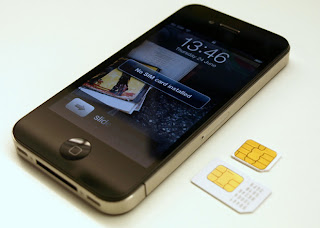T-Mobile Seems to Be the Only Carrier
I have long railed on carrier incompetence when it comes to telecommunications. Instead of viewing VoIP as a healthy supplement to the voice market, telecom carriers have always tried to actively prevent getting a foothold - but without much success. Given all this hostility, it's remarkably refreshing to see a major U.S. telecom carrier to try and embrace VoIP and all it entails, rather than an attempt to suffocate.
VoIP use in the United States faster than any other form of Internet traffic is growing. Services like Google Voice already accounts for 20% of all voice activity on each network and this is expected to more than double in the coming years. This explosion was aided by the smartphone revolution and the upgrading of wireless capabilities, most recently as 3G and 4G. Yet this growth has occurred despite the reluctance carriers. Throughout the world, we see telcos plays with plans for additional costs for VoIP traffic and to prohibit it altogether. In some countries, the government stepped in to keep under wraps - like Saudi Arabia and China.
Last team T-Mobile with no contract for Walmart, $ 30 per month data service is just one indication of a willingness to buck this trend. On its website offers the ability to place calls using wifi if possible, and they recently introduced a service known as bobsleigh, which allows users to Facebook friends free calls. The data plans in collaboration with Walmart are the most exciting offer so far.
The threshold is of course one that T-Mobile can not help it. Namely that most people are locked into contracts which they have a regular monthly fee to pay for a fixed number of minutes that most of them simply never use. Many people have roll over minutes numbering in the thousands that expire sooner or later. This is obviously a boost for the telcos that get revenue for unused minutes, which is guaranteed over a period of two years. In addition, customers use the phone to upgrade their plans and thus still keep locked in contracts.
But there is a growing resistance to this system is partly fueled by the knowledge of how other countries operate and this is what T-Mobile is trying to capitalize on. Once the contract system ends, people will be free to try new and innovative plans and unconventional ways of making calls through services such as VoIP. The process is slow, but it moves along. And T-Mobile seems well positioned to take advantage of when the time comes.
VoIP use in the United States faster than any other form of Internet traffic is growing. Services like Google Voice already accounts for 20% of all voice activity on each network and this is expected to more than double in the coming years. This explosion was aided by the smartphone revolution and the upgrading of wireless capabilities, most recently as 3G and 4G. Yet this growth has occurred despite the reluctance carriers. Throughout the world, we see telcos plays with plans for additional costs for VoIP traffic and to prohibit it altogether. In some countries, the government stepped in to keep under wraps - like Saudi Arabia and China.
Last team T-Mobile with no contract for Walmart, $ 30 per month data service is just one indication of a willingness to buck this trend. On its website offers the ability to place calls using wifi if possible, and they recently introduced a service known as bobsleigh, which allows users to Facebook friends free calls. The data plans in collaboration with Walmart are the most exciting offer so far.
The threshold is of course one that T-Mobile can not help it. Namely that most people are locked into contracts which they have a regular monthly fee to pay for a fixed number of minutes that most of them simply never use. Many people have roll over minutes numbering in the thousands that expire sooner or later. This is obviously a boost for the telcos that get revenue for unused minutes, which is guaranteed over a period of two years. In addition, customers use the phone to upgrade their plans and thus still keep locked in contracts.
But there is a growing resistance to this system is partly fueled by the knowledge of how other countries operate and this is what T-Mobile is trying to capitalize on. Once the contract system ends, people will be free to try new and innovative plans and unconventional ways of making calls through services such as VoIP. The process is slow, but it moves along. And T-Mobile seems well positioned to take advantage of when the time comes.




Comments
Post a Comment